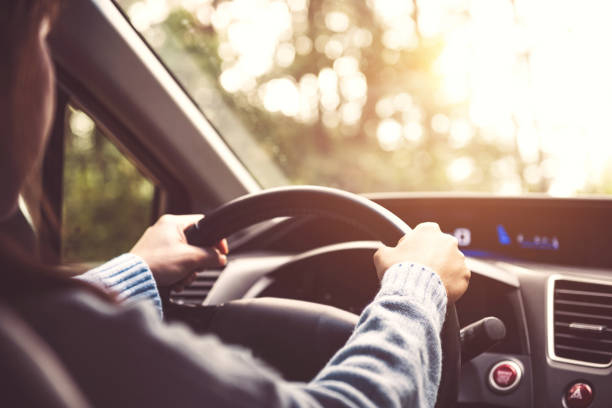When the inevitable happens and someone you love passes away, it can be a difficult time of navigating emotions, estate paperwork, and often times figuring out what to do with their belongings. One common question is: for how long can you drive a deceased person’s car? In this blog post, we’ll explore some of the legal aspects surrounding this issue in order to help bring clarity during your time of sorrow.
Contents
What happens to a deceased person’s car after their passing?
In the event of someone passing away, the deceased person’s car is typically left to their estate beneficiaries. However, it is possible for a beneficiary to drive the car during this transition period if they have a valid driver’s license and proof of insurance. The length of time that you can use the vehicle will vary depending on your situation. For example, if there are multiple beneficiaries who need to use the car, then the length of time may be limited in order to evenly divide up usage.

The executor of an estate has the legal authority to authorize a deceased person’s car. The executor is responsible for carrying out the wishes of the deceased and managing their estate, including any vehicles that may have been left behind. It is important to note that in order for the executor to legally transfer ownership of a vehicle, they must obtain approval from probate court.
How is the ownership of a deceased person’s car transferred?
Typically, the ownership of a deceased person’s car is transferred to the beneficiary through probate court. In order for this process to be completed, the executor must first provide proof that they are legally able to represent the estate. This involves submitting paperwork and documentation such as death certificates, wills, title information, and other supporting documents. Once everything has been reviewed and approved, the probate court will issue an official order transferring the ownership of the car.
In some cases, it may also be possible to transfer the vehicle without going through probate court. This is often done if there are only a few beneficiaries and they can all agree on how to divide up usage of the car. In this case, you would need to obtain a court order authorizing the transfer of ownership.
Can you legally drive a deceased person’s car?
Yes, you can legally drive a deceased person’s car if you have the proper documentation and authorization from probate court. It is important to note that the length of time for which you are allowed to use the vehicle may be limited depending on your situation. Additionally, you will need to make sure that the vehicle is properly insured in order for it to be driven legally.
How long can you drive a deceased person’s car?
So, how long can you drive a deceased person’s car? The amount of time you can drive a deceased person’s car will depend on your situation and the wishes of the estate. In general, it is advisable to keep use of the vehicle to 30 days or less, unless other arrangements have been made in consultation with probate court. This will help ensure that all parties involved are able to make equitable use of the car during this difficult time.
What documentation is needed to drive a deceased person’s car?
When driving a deceased person’s car, it is important to have the proper documentation in order to remain compliant with the law. This includes proof of insurance and a valid driver’s license for whoever is operating the vehicle. Additionally, you may need to provide legal documents such as a court order or death certificate in order to prove that you are the rightful owner of the vehicle.

Steps to take before driving a deceased person’s car
Before driving a deceased person’s car, it is important to take the following steps:
• Verify that you have the legal right to drive the vehicle. This may include obtaining authorization from probate court or other estate beneficiaries.
• Make sure that all paperwork and documentation related to the vehicle are in order. This includes proof of insurance and a valid driver’s license.
• Ensure that all fees and taxes associated with the vehicle have been paid in full.
• Have proper identification on hand, such as a driver’s license or other form of photo ID.
• Familiarize yourself with local laws and regulations regarding driving a deceased person’s car.
• Consider arranging for insurance coverage for the vehicle if it is not already covered.
Consequences of arbitrarily driving a deceased person’s car
It is important to remember that driving a deceased person’s car without the proper documentation or authorization can result in legal consequences. If you are found driving the vehicle without proof of insurance, valid driver’s license, or court order, then you may be subject to fines and other penalties. Additionally, not following the wishes of the estate can lead to disputes among beneficiaries and could potentially result in the car being taken away.

Conclusion: How long can you drive a deceased person’s car?
In most cases, you can legally drive a deceased person’s car for up to 30 days or less with proper authorization and proof of insurance. It is important to make sure that all paperwork and documentation are in order before operating the vehicle, as well as familiarizing yourself with local laws and regulations. Ultimately, it is best to consult with probate court or estate beneficiaries if you have any questions or concerns about driving a deceased person’s car.
FAQ: Deceased person’s car
Can a deceased person’s car be transferred to a trust?
Is it possible to transfer a car owned by a deceased person to a trust?” Yes, but it can only be done after completing the probate process. To get started, the executor or administrator should promptly contact either the Probate Court or an attorney for guidance on the steps required.
Can a deceased person’s car be sold?
If there was a Will in place, the Executor of the Estate or the beneficiary of the car can sell it. If the estate undergoes Probate proceedings, the new owner of the car can be given a letter of testamentary from the local Probate Court, confirming that they are legally authorized to sell the vehicle. Don’t navigate this process alone – consult trusted legal and financial experts for guidance.
How do you handle the insurance on a deceased person’s car?
Managing car insurance for a deceased individual can be confusing. When the car’s owner passes away, the car’s ownership will transfer to the legal heir. In addition, if the insurance policy is still valid, the policy will also transfer to the legal heir’s name. Ensure a seamless transition by understanding the process for managing insurance on a deceased person’s car.
Can family members use a deceased person’s car?
In order for a family member to legally drive a previously-owned vehicle belonging to a deceased person, certain documents are required. These include a copy of the deceased’s death certificate, the current vehicle title, and an application. Additionally, insurance and registration are necessary before operating the vehicle on public roads. Ensure that you have all the necessary paperwork to avoid any legal complications.
Can a deceased person’s car be driven before the estate is settled?
Drive a deceased person’s car before the estate is settled with the executor’s consent and a road-worthy vehicle. It’s possible.
Can a deceased person’s car be leased or rented out?
Is it possible to lease or rent out the car of a deceased individual? The answer is yes. The terms of a leased vehicle remain in effect even after the unfortunate passing of the lessee. Although some car leases provide the option of early termination in the event of the lessee’s death, most leases still require full payment from the estate or cosigner. Ensure that you understand the terms and obligations of a car lease to avoid any potential confusion or complications.
What happens if a deceased person’s car is still being financed?
Car loans don’t simply disappear when someone passes away. Meaning, any outstanding debts of the deceased must be paid, including auto loans. Fortunately, many car loans have a “death clause” outlining the repayment process in the event of the borrower’s death. If the deceased has a will, the heir(s) of the vehicle may also inherit the auto loan associated with the car. Our guide provides essential information on how to navigate this complex topic when dealing with a deceased person’s car that is still being financed.
Can a deceased person’s car be donated to a charity?
Donate a deceased loved one’s car to charity: yes, it’s possible. But there are specific procedures to follow depending on the state.
What happens if a deceased person’s car was not named on the assets?
Don’t leave your car out of your will. If a deceased person didn’t list their vehicle as an asset, the executor can either sell it for cash to divide among beneficiaries or give it to a chosen beneficiary. Make sure your assets are clearly stated to avoid complications after your passing.
Can a deceased person’s car be used by the executor of the estate?
As an executor of an estate, you may wonder about the fate of a deceased person’s car. If the vehicle is co-owned, transferring ownership is straightforward. But if there isn’t a joint owner, it’s important to check the Will for specific instructions about car distribution. Rest assured that with the necessary steps taken, the car can still be put to good use.

Trayce served as a grassroots leader and activist in Texas as President of Dallas and Texas Eagle Forum.
Trayce is Mom Caucus Member, Texas Conservative Mamas, Texas Conservative Grassroots Coalition Leader, and Grassroots America Champion of Freedom Honoree.
She currently serves as the Eagle Forum National Issues Chair on Human Trafficking.
Trayce received a Bachelor’s Degree in Marketing from Texas A&M
Currently, she homeschools her youngest child age 13 and graduated her six oldest children, ages 31 to 19.







